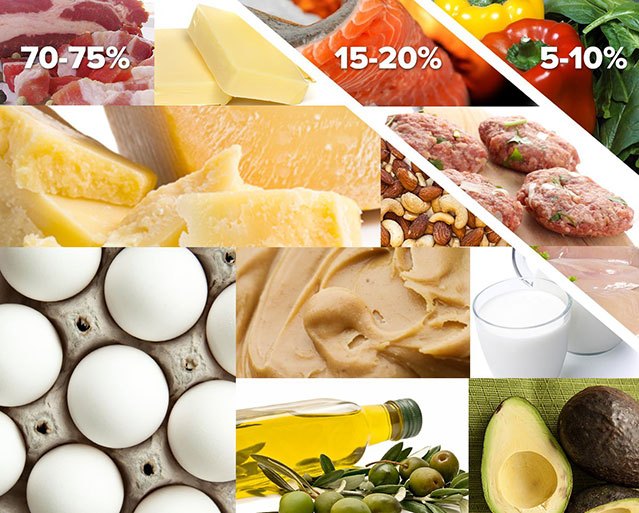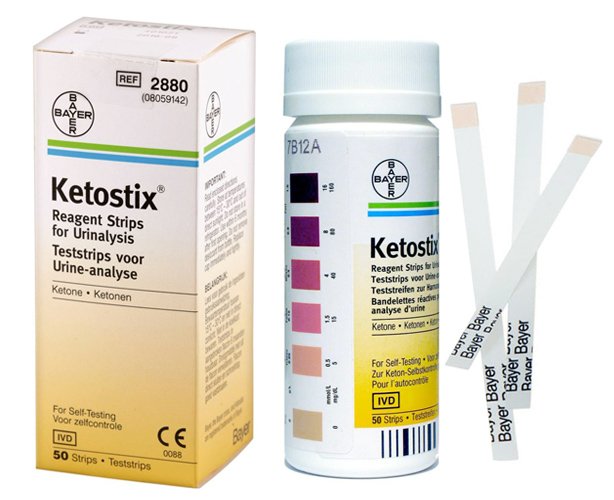Please choose a body region on the right for you to pin point the problem area of your body.

Shop by Condition

Shop by Brand
Health is a growing concern among individuals all over the world. A range of serious health and lifestyle disorders have taken over and are affecting a vast majority of the population. Some of the common ones include obesity, arthritis, heart disease and diabetes.
Numerous fad diets come up almost every day, but hardly any diet has proven to offer long-term benefits. There is one diet, however, which has been implemented for over nine decades. It was founded on a detailed understanding of nutrition science and physiology. It is called the ‘ketogenic diet’ or more popularly, the ‘keto diet’.

The unique characteristic of a keto diet is that it is not dependent on extensive calorie-counting, extreme exercise or portion control. The approach of a keto diet to health improvement and weight loss is very different. It is a diet that is high in fat and low in carbohydrates with adequate protein consumption. The goal of the diet is to consumer maximum calories from fat and protein, rather than from carbohydrates. And why does it work? Well, there is a simple scientific explanation for this: it depletes the sugar stores of the body so that it can switch to burning fat and protein for energy production, thus causing ketosis. Once the levels of ketone in your blood rise up to a specific point, the body enters what is known as the ‘ketosis state’. This typically results in fast and continued weight loss till a healthy, steady weight is reached.
There is enough solid research that backs the numerous benefits of a ketogenic diet. It is actually proven to be more effective than almost all other diets. Some of the health and lifestyle disorders that can be managed/prevented with a keto diet include:
So what is the amount of carbohydrates that you can eat and still remain in the state of ketosis? Well, a very strict ketogenic diet would require the individual to get approximately 75% of the calories from fat sources, such as butter, oils and fatter meat cuts, 20% calories from protein and just 5% from carbohydrates. But a majority of the people today follow a slightly altered and less strict keto diet to lose weight in a quick and safe way.
As mentioned earlier, the keto diet can potentially reduce the levels of blood sugar in your body. For those who have type 2 diabetes, it is important to manage carbohydrate intake since carbohydrates are converted into sugar and may lead to spikes in blood sugar levels, especially if consumed in significant quantities. If your blood glucose levels are already high, then eating a lot of carbs could pose a health danger. Many people with diabetes, who have started following a keto diet, report a drop in the blood sugar levels as a result of switching to fats.
It is important to take note of some precautions when considering a ketogenic diet to manage diabetes:
Some people may also need to make rapid changes to their medications when following a ketogenic diet. It is best to consult an endocrinologist or physician before developing and implementing a ketogenic plan.
Diabetic individuals following a keto diet could greatly benefit from tools such as ‘ Ketostix Ketone Test Strips ’. These are urine testing strips for acetoacetic acid or ketone and offer a convenient and quick way to test urine for acetoacetic acid presence and concentration. The presence of this substance in an individual’s urine sample can provide useful information on fat and carbohydrate metabolism.
Are you considering a keto diet to lose weight and manage lifestyle and health problems such as heart disease and diabetes? If yes, then here is a list of foods that you could include when planning your daily meals:
Keto diet experts inform that shellfish and fish are some of the best foods to include in your keto-friendly diet. Fish, such as salmon, are high in potassium, selenium and B-vitamins and almost free of any carbohydrates. But the carbohydrate content in different shellfish could vary. Example, shrimp and crabs (most varieties) are free of carbs, but other kinds of shellfish may have some carb content.
You could definitely include lots of green, leafy vegetables in your ketogenic diet. But stay away from all kinds of starchy veggies when you’re just starting out and wish to lose weight. Some of the best vegetables to get for your keto meals are:
Yes, you can happily include cheese in your keto diet. It is both delicious and nutritious. The good news is that all kinds of cheeses have a low carbohydrate content and high fat content. This means that it is an ideal keto-friendly food. More specifically, an ounce of cheese typically provides protein equivalent to 7 grams and carbohydrates equivalent to 1 gram. And while it has high amounts of saturated fat, there is no evidence of it increasing heart disease risk.
Poultry and meat are staple foods included in a keto diet. Fortunately, fresh poultry and meat do not contain any carbohydrates. Further, they have a high content vitamins and minerals, especially vitamin B, zinc, potassium and selenium. Poultry, meat and eggs are also excellent sources of protein and help in developing and preserving muscle mass when following a low-carb diet.
Besides the above foods, you could also include coconut oil, olive oil, cottage cheese, Greek yogurt and a variety of different seeds and nuts in your ketogenic diet.
| Stay Connected! | |
|
Related Articles
Get $10 off your next order when you sign up to receive our email newsletter.*
Simply enter your email address below!
*Minimum order value of $100. Valid email address to qualify.








